Nutritional Parameters Testing
Nutritional parameter testing involves analysing food items to determine their nutrient composition and overall quality. Nutritional parameter testing is crucial for ensuring food quality, safety, and compliance with dietary guidelines.
It helps consumers make informed choices and supports public health initiatives. It includes testing like Macronutrients (Carbohydrates, Proteins, fats), Fibre content, energy, whole grain vs refined grain content.
& Pulses, Spices & Herbs & For Food additives.
Pesticides Residue and Contaminant Testing
Pesticides are chemical compounds used to control a wide range of pests, including insects, rodents, fungi, and weeds. They encompass various categories, such as insecticides, herbicides, nematicides, fungicides, molluscicides, rodenticides, and plant growth regulators. in a variety of sectors like food, forestry, agriculture and aquaculture. Pesticides shows their toxicity into the living systems.
These substances can be either naturally derived or chemically synthesized and find applications across several sectors, including agriculture, forestry, aquaculture, and food production. While pesticides are effective in managing pest populations, they also pose toxicity risks to living organisms.
The presence of pesticide residues in our food is strictly regulated. Although some residues may remain at the time of harvest, their levels generally decline as the pesticides break down over time.
IndoPrime Analytical Laboratory is a state-of-the-art, NABL-accredited facility specializing in pesticide residue analysis.
- Laboratory accommodate analysis of more than 750 Pesticides residue which are covered under NABL scope
- The strength of laboratory to test various pesticides, PGR, Dithiocarbamates, ETO by LC-MSMS and GCMSMS.
- We deliver comprehensive results that include detected pesticide residues and their Maximum Residue Limits
- Our Laboratory is equipped to test a wide range of products, including spices, cereals, pulses, fruits, vegetables, herbs, ready-to-eat foods, proprietary foods, and food additives.
- We specialize in analysing samples for Integrated Pest Management (IPM), delivering reliable results in a shorter time frame.
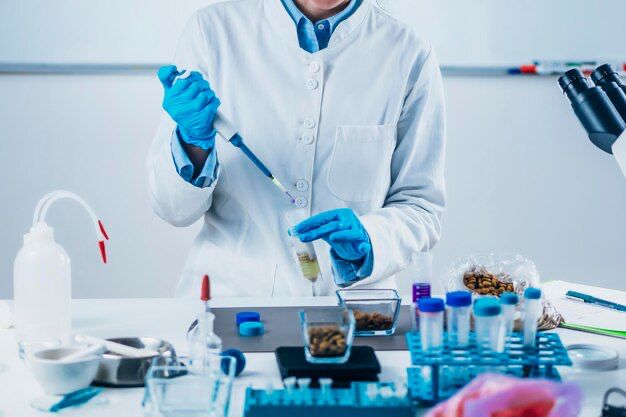
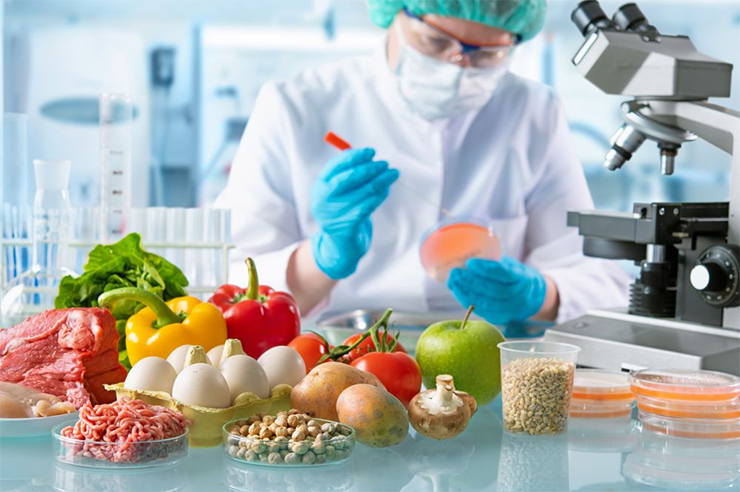
Physical Testing
Physical testing in food science involves evaluating the physical properties of food products to ensure quality, safety, and consistency. These tests assess various attributes, including texture, colour, appearance, size, shape, and moisture content.
Regular physical testing ensures that products meet industry standards and consumer expectations, helping maintain consistency in production.
Manufacturers can use physical testing to evaluate product value, align products with consumer perceptions, and ensure food safety, particularly for items that require cooking. Unusual physical characteristics may indicate issues with shelf life, production, or the supply chain.
This testing provides businesses with a significant advantage by allowing them to monitor supplier products and identify potential problems before customer complaints arise. Additionally, when physical attributes are assessed alongside consumer research, the specification ranges can be correlated with desirable product features.
IndoPrime Analytical Laboratory offers a comprehensive range of physical testing services with quick turnaround times. Our laboratory is staffed by competent and trained analysts dedicated to delivering accurate results.
Proximate Testing
The proximate composition of foods includes moisture, ash, lipid, protein, and carbohydrate contents. These food components are of interest in the food industry for product development, quality control (QC), or regulatory purposes.
Accurate proximate analysis is essential for creating nutritional labels that comply with regulatory standards, helping consumers make informed choices.
In food manufacturing, monitoring proximate composition ensures consistent product quality and adherence to specifications.
Proximate analysis is a fundamental aspect of food science, providing critical data for nutrition, safety, and quality assurance in the food industry.
IndoPrime Analytical Laboratory offers quick turnaround time for proximate testing within one day.
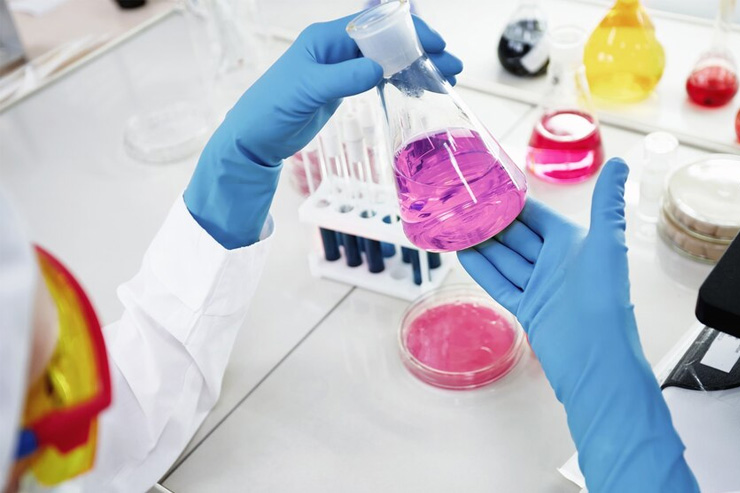
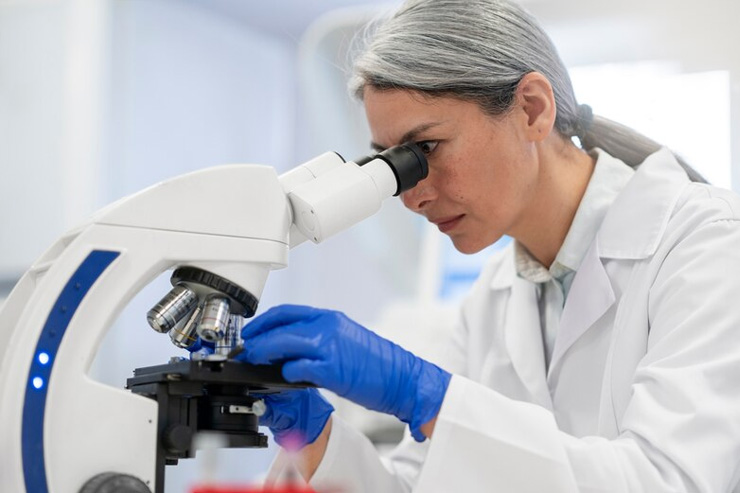
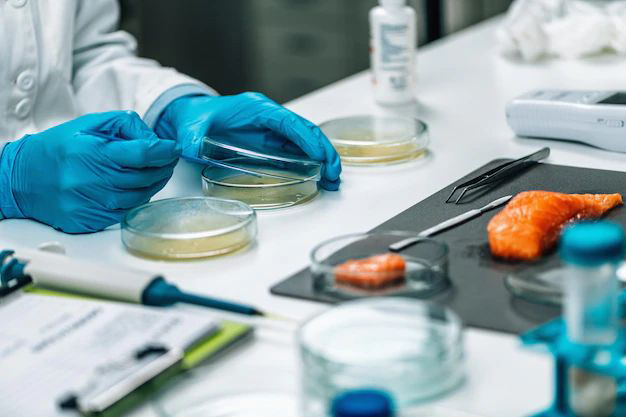
Microbial Testing
Microbial Food and Beverage Testing involves assessing contamination levels of microorganisms during manufacturing and in final consumer products. This testing employs biochemical and molecular methods for the detection, identification, and enumeration of microorganisms.
Most foods provide an ideal environment for microbial growth, leading to spoilage. Factors influencing microbial growth include pH, temperature, salt and sugar content, and moisture levels.
- 1.Determination of Microbiological Quality: This strategy measures the total viable microbial count, including total bacteria count (TBC) and total yeast and mold count (TYMC), providing insights into the food’s microbial quality.
- 2.Determination of Food Safety: This strategy tests food samples for various pathogens, such as Enterobacteria, Enterococci, coliforms, E. coli, Pseudomonas, Clostridia, Salmonella, Bacillus, Staphylococcus, lactic acid bacteria, Listeria, yeasts, and molds.
Conventional microbiological testing in food safety management includes, enzyme-linked immunosorbent assay (ELISA), enzyme-linked fluorescent assay (ELFA), fluorescence in situ hybridization (FISH), and conventional, real-time, and multiplex polymerase chain reaction. Each of these conventional methods were developed to identify precise levels of foodborne microorganisms. Most of these methods require a 25 g sample of whatever food is being tested. It is also common for other tests to be conducted to confirm the results of the conventional tests. This is particularly true when dangerous microorganisms have been identified.
Laboratories conducting microbiological testing adhere to stringent procedures recognized by the FDA and other food safety organizations. Standard procedures include careful weighing, standard dilution, precise pipetting into petri dishes, and incubation at specific times and temperatures, all governed by regulatory requirements to ensure consistent outcomes.
IndoPrime Laboratory offers comprehensive microbiology testing, analysing a wide range of microorganisms, including fungi, molds, and bacteria. Our methods are compliant with AOAC, FDA BAM, EPA, and USDA standards, backed by extensive expertise in microbiology to deliver robust services.
Allergens Testing
Allergen testing is a crucial process for identifying and quantifying allergens in food products, helping to protect individuals with food allergies. Common allergens include gluten, peanuts, Sesame, mustard, soy for all food commodities. As food allergies can lead to severe reactions, accurate testing is essential for food safety.
The Enzyme-Linked Immunosorbent Assay (ELISA) method is widely used method detects specific allergenic proteins by using antibodies that bind to the allergens. It's effective for screening a variety of food products.
IndoPrime Analytical Laboratory is well equipped with the ELISA technique, which is included in our NABL accreditation scope.
Organic Food Testing:
- Ethylene oxide is one of the widely used fumigant against microbial growth. Since it is carcinogenic its analysis is mandatory for Export consignments.
- IndoPrime Analytical Laboratory can analyze Spices, Cereals , Oilseeds and various food products for ETO by using GCMS/MS.
Ethylene oxide (ETO) testing
- Our Laboratory is well equipped with LC-MS/MS and GC-MS/MS to analyze pesticide residue at lower concentration at parts per billion level.
- IndoPrime Analytical Laboratory is certified and included in approved laboratory list of APEDA for Organic Food Testing of Fruits & Vegetables , Cereals & Pulses ,Spices & Herbs & For Food additives.